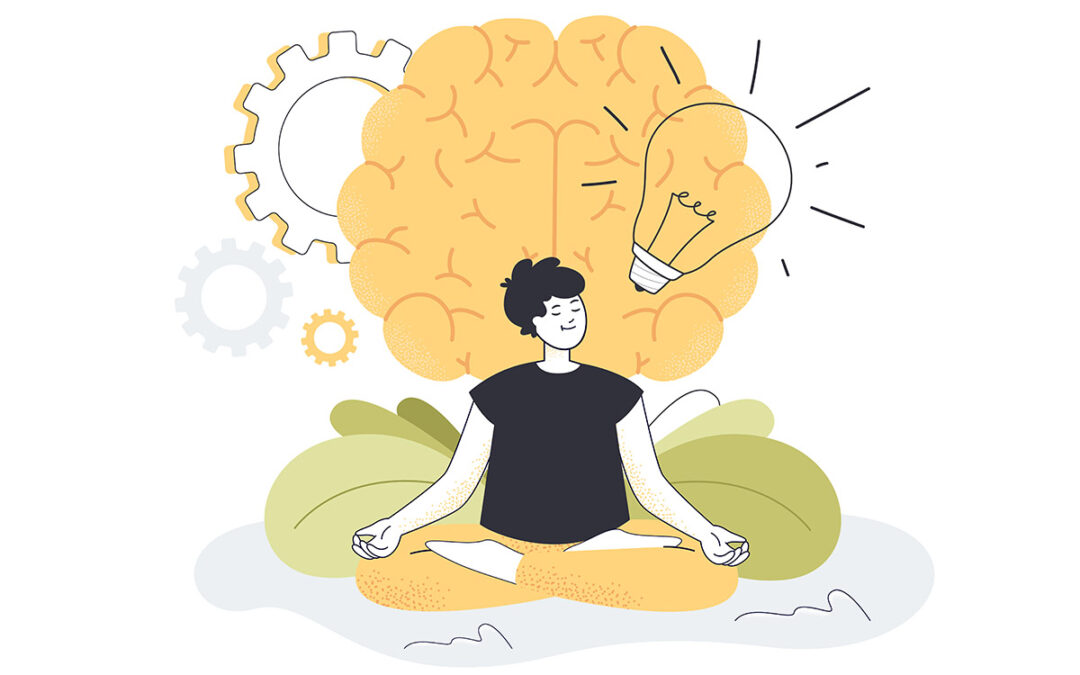Spirituality is a wide notion with space for several perspectives. It presents a worldview that implies there is more to life than what humans experience on a sensory and physical level. It generally involves a quest for meaning in life. It is a universal human experience. People may explain it as sacred or transcendent or a deep sense of aliveness and interconnectedness. Like your sense of purpose, your personal definition of spirituality may change throughout your lifetime, modifying due to your experiences and relationships. For several, it’s about a belief in God and actively participating in organized religion. For others, it’s about non-religious experiences that help them connect with their spiritual selves through quiet reflection, time in nature, private prayer, yoga, or meditation.
Research has consistently found that higher levels of spirituality have been linked to increased compassion, strengthened relationships, and improved self-esteem. It has been a source of comfort and relief from stress for a lot of people by providing them with a sense of peace, purpose, and forgiveness. It often becomes crucial in times of emotional stress or illness. While people use various paths to express their spirituality, research has demonstrated that those who are more spiritual and use their spirituality to cope with trials in life experience many benefits to their health and well-being.
Spirituality plays a role in many of the decisions that we make. It motivates people to have better relationships with themselves, others, and the unknown and also evokes qualities such as love, honesty, patience, tolerance, compassion, a sense of detachment, faith, and hope. It helps a person look within and understand themselves while also figuring out the greater answer of how they fit into the rest of the world, thereby helping people understand their interpretation of the meaning of life. Spirituality also integrates healthy practices for the mind and body, which positively impacts mental health and emotional wellbeing.
Impact of Spirituality on Mental Health
Spirituality affects our mental health in several ways. It is what gives you a sense of value or worth in your life.
- You may feel a higher sense of purpose, peace, hope, and meaning.
- You may experience better confidence, self-esteem, and self-control.
- It can help you make sense of your experiences in life.
- When unwell, it can help you feel inner strength and result in faster recovery.
- Those in a spiritual community may have more support.
- You may work at improving relationships with yourself and others.
- Enhances a person’s sense of self and empowerment through the choice to decide what their practice looks like
- Focuses on an individual’s connection to what they believe in and their own personal growth
- Accepts any person, whether they are part of a religion or not
- Encourages meditation and self-reflection
- Leads to a meaningful life philosophy (i.e. feeling connected to others, nature or art)
- Prompts expression in any form such as art, poetry, myth or religious practice
- Renews a sense of belonging in the world
- Inspires appreciation and awareness of a person’s interaction with the physical environment.
Spirituality can influence a person’s coping styles or perceptions regarding the locus of control. It can provide access to a network of social support and increase social capital, both of which are widely acknowledged to promote and sustain emotional and psychological wellbeing. Some expressions of spirituality affect the lifestyle and may encourage individuals to limit illness-related behaviors, such as smoking, drinking excessive alcohol and overeating, or to increase health-related behaviors such as meditation, exercise and helping others.
Many people with a mental illness begin to feel hopeful by talking with a spiritual leader. Some mental illnesses can be seen as times when people question their value or purpose in a way that makes them feel pessimistic. It can be extremely helpful to include spirituality in the treatment of mental health difficulties. Mental health disorders could be treated with the help of spirituality through a psychotherapeutic approach known as Spiritually Augmented Cognitive Behavior Therapy. It involves including spiritual values in cognitive behavior therapy. It focuses on four key areas: Acceptance, Hope, Achieving meaning and purpose and lastly, Forgiveness.
One possible pitfall of spirituality is a phenomenon called spiritual bypassing. It is a tendency to use spirituality as a way to avoid problems, emotions, or conflicts. For example, rather than apologizing for some type of emotional wound you have caused someone else, you might bypass the problem by simply excusing it and saying that “everything happens for a reason” or suggesting that the other person just needs to “focus on the positive.” Spirituality can enrich your life and lead to a number of benefits, but it is also vital to be cautious to not let spiritual ideals lead to pitfalls such as dogmatism or a reason to ignore the needs of others.
As we take measures to support a healthy mental state, it’s important to make sure we also take care of our spiritual health. Different approaches work differently for different people. You should do what makes you most comfortable. Some ideas to improve your spiritual health include:
- Find out what makes you feel peaceful, loved, strong, and connected.
- Dedicate part of your day doing community service.
- Read inspirational books.
- Try meditating.
- Take a walk outdoors.
- Pray – alone or with a group.
- Practice yoga.
- Play your favourite sport.
- Dedicate quiet time to yourself.
– Urveez Kakalia and Dhara Mehta.

